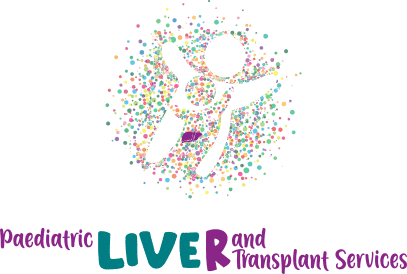What is Alagille Syndrome?
Alagille Syndrome (ALGS) is a rare genetic condition that affects multiple organs, primarily the liver, heart, and kidneys. It is caused by a change (mutation) in the JAG1 or NOTCH2 genes, which play a crucial role in organ development. Because ALGS affects different parts of the body, each child’s experience with the condition can be very different.
While it is a lifelong condition, with the right medical care and support, many children with ALGS can grow and thrive. Understanding the condition is the first step in helping your child live a healthy and fulfilling life.
How Does Alagille Syndrome Affect the Liver?
The liver is one of the most affected organs in ALGS. Normally, the liver has many small bile ducts that help drain bile from the liver into the intestines to aid in digestion. In children with ALGS, there are fewer bile ducts than normal (this is called bile duct paucity). This leads to a buildup of bile in the liver, known as cholestasis, which can cause:
🟠 Yellow skin or eyes (jaundice)
🟠 Severe itching (pruritus)
🟠 Poor growth and weight gain
🟠 Pale or greasy stools
🟠 Fat-soluble vitamin deficiencies (A, D, E, K)
While some children have mild liver involvement, others may develop progressive liver disease that requires a liver transplant.
Other Symptoms of Alagille Syndrome
Alagille Syndrome can also affect:
❤️ The Heart – Some children have heart problems like narrowed arteries or congenital heart defects, which may require monitoring or surgery.
🦴 Bones and Growth – ALGS can cause short stature, butterfly-shaped vertebrae, and poor bone strength.
👁️ The Eyes – Some children have changes in the eye structure, but vision is usually normal.
🧠 The Blood Vessels – Some children with ALGS have blood vessel abnormalities, which may increase the risk of stroke.
How is Alagille Syndrome Diagnosed?
Doctors usually suspect ALGS when a child has cholestasis (liver disease) along with other symptoms such as heart defects, skeletal differences, or distinct facial features.
Common tests include:
🔬 Liver biopsy – To check for reduced bile ducts
🩺 Echocardiogram – To assess the heart
🦴 X-rays – To look for skeletal differences
🧬 Genetic testing – To confirm the JAG1 or NOTCH2 gene mutation
If your child has persistent jaundice or other symptoms, it is important to see a specialist early for diagnosis and management.
Treatment and Management
There is no cure for Alagille Syndrome, but treatment focuses on managing symptoms and preventing complications.
💊 Medications
- Ursodeoxycholic acid (UDCA) – Helps bile flow and may reduce jaundice.
- Medications for itching – Cholestyramine, rifampicin, antihistamines, or newer drugs like Maralixibat (IBAT inhibitors).
- Vitamin supplements – Children with ALGS need extra vitamins A, D, E, and K to prevent deficiencies.
🥦 Nutrition Support
Many children with ALGS struggle with poor weight gain due to difficulty absorbing fats. High-calorie diets and special formulas may be needed to support growth.
🩺 Regular Check-ups
Since ALGS affects multiple organs, your child may need to see a team of specialists, including:
👩⚕️ Paediatric hepatologist – For liver health
👩⚕️ Cardiologist – For heart monitoring
👩⚕️ Dietitian – For nutrition support
🚨 When is a Liver Transplant Needed?
Some children with ALGS develop severe liver disease that requires a liver transplant. This is usually considered when there is severe itching, liver failure, or poor quality of life despite treatment. If your child needs a transplant, your doctor will guide you through the process.
Living with Alagille Syndrome: What Parents Can Do
💙 Be an advocate – Learn about ALGS and work closely with your child’s medical team.
🍎 Focus on nutrition – Ensure your child gets enough calories and vitamins.
🛏️ Manage itching – Severe itching can affect sleep and daily life, so speak to your doctor about treatment options.
👩⚕️ Stay on top of medical appointments – Regular check-ups help catch complications early.
👨👩👧👦 Seek support – Connecting with other parents through support groups can be helpful.
Hope for the Future
Medical research is continuously improving how ALGS is treated. New medications are being developed, and better liver transplant outcomes mean that children with ALGS have brighter futures than ever before.
You are not alone on this journey! Stay informed, ask questions, and never hesitate to seek help when needed.
🔗 For more resources and support, visit: www.meded.co.za
Rare but Real: The Alagille Syndrome Story
Podbean
MEDED Accredited Page
Spotify
#AlagilleSyndrome #RareDiseaseAwareness #LiverHealth #PaediatricCare

